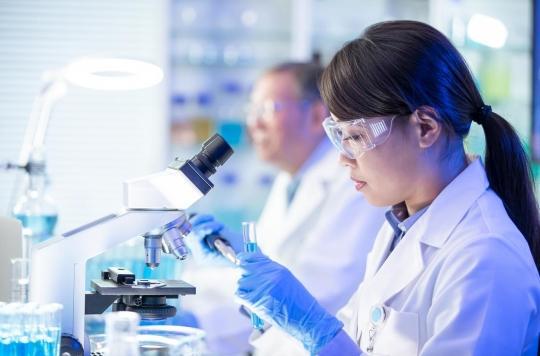Gender inequalities in medical research: an impact on women's health
THE ESSENTIAL
How can we explain that female diseases such as endometriosis, polycystic ovary syndrome, fibromyalgia or postpartum pre-eclampsia are so little taken into account by medical research, and that few treatments are offered to women who suffer from them? suffer?
Harvard Business School researcher Rem Koning set out to find an answer after his wife developed an incurable rare disease after childbirth: postpartum pre-eclampsia, which results in hypertension. "They can treat it with magnesium to lower blood pressure, but you feel really bad," says Professor Koning, quoted by 20 Minutes.
Women's health, largely overlooked in patents filed by men
To understand why this disease is still ignored by the world of medical research, he conducted a three-year study sifting through text analysis by "machine learning" (automated software learning) of more than 441,500 biomedical patents in United States, filed between 1976 and 2010. The results have just been published in the journal Science and are instructive.

They reveal that inventions from research teams made up mostly or exclusively of men are significantly more likely to address men's medical needs. "In 34 of the 35 years between 1976 and 2010, male-dominated teams produced hundreds more male-focused inventions than female-focused ones. These male inventors were more likely to generate patents covering topics such as "erectile" or "prostate" than "menopause" or "cervix". Male inventors also tended to target diseases and conditions such as Parkinson's disease and sleep apnea, which affects men disproportionately," Koning told The Conversation.
Conversely, these inventions rarely target women's health. “Male researchers have tended to downplay, if not outright ignore, the medical needs of women. As a result, innovation has focused primarily on what men choose to research,” notes the researcher.
As for inventions patented by research teams composed mainly or entirely of women, they are more likely to relate to conditions such as breast cancer and postpartum preeclampsia, as well as diseases that affect women disproportionately. , such as fibromyalgia and lupus.
The problem is that even in 2010, only 16.2% of patents were invented by teams with as many women as men. This in effect penalizes women because, although women's inventions are more likely to be female-focused, such patents were infrequent because there were so few female inventors.
End gender bias
Medical research therefore has everything to gain from including more women in its teams and granting more patents to female research teams. “Our calculations suggest that if male and female inventors had been equally represented during this period, there would have been 6,500 additional female-focused inventions. In percentage terms, equal representation would have led to 12% 'feminine inventions and more', underlines Professor Koning.
According to him, there are other advantages to giving more places to women in medical research. The latter are more likely to identify how existing treatments for non-gender-specific conditions, such as heart attacks, diabetes and strokes, can be improved and adapted to women's needs. They are also more likely to check whether a treatment may cause more undesirable side effects in women than in men. Finally, their research more specifically targets the health needs of women, which could help find many treatments for still incurable diseases of women.
Hence the need, for research, to increase the proportion of women in medical research teams, but not only: it is also necessary to put an end to sexist prejudices and unequal treatment between women and men. Even today, women scientists are 40% less likely to commercialize their research ideas than men.
Eudaemonism: all about this philosophy of happiness
GO
How Danielle Collins became a champion again despite having endometriosis
GO
Seven cases of COVID-19 are added to the regional balance sheet of Gaspésie
GO
Effects of palm oil on health: what are the dangers?
GO